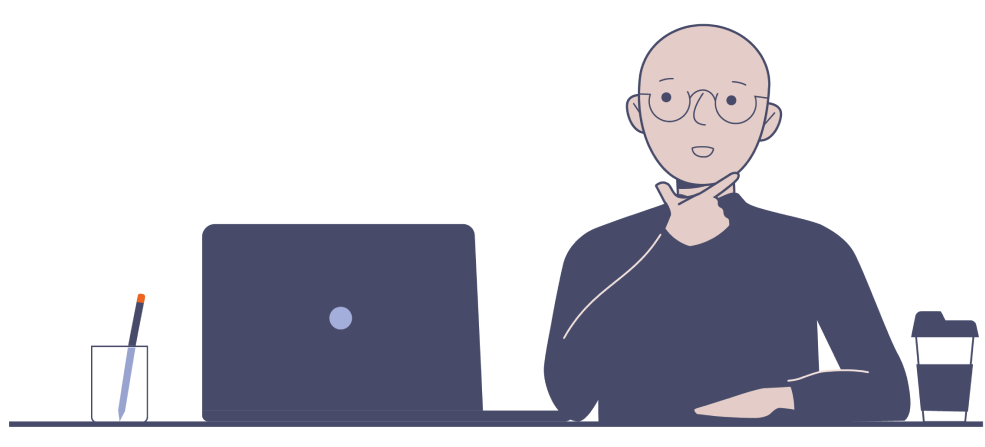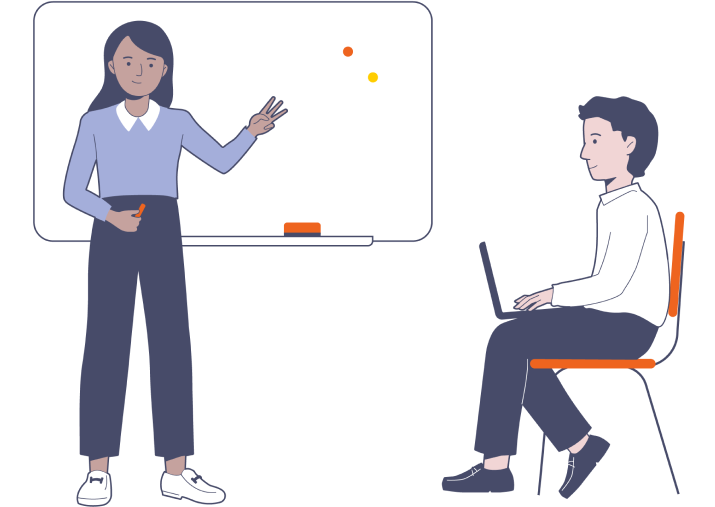
Case Study: Instructional Coaching at Abacus Primary: Seven Lessons Learned
Resources|16th February 2023

Primary Associate Education Director - Anthem Schools Trust

Director of Communities — Steplab
As a primary school head and a MAT leader, I believe it is an absolute entitlement for every teacher in our organisation to have meaningful, quality professional development.
Introduction from Ania
At Steplab, we believe that instructional coaching is a powerful tool for school improvement, but that careful implementation is key to making sure instructional coaching has an impact. We get lots of questions from primary heads about the nitty gritty of implementation: how do you find the time for coaching? Who should be an instructional coach? How do you train instructional coaches? What do you coach on? There’s lots of advice out there on how to implement instructional coaching in secondary schools…but what about primary?
So, we asked Vicki Briody, Executive Headteacher at Abacus Primary and Primary Associate Education Director at Anthem Schools Trust to share her wisdom and answer these questions. In this case study, Vicki shares her key lessons learned from leading instructional coaching at Abacus and working with 11 other primary schools in the Anthem Schools Trust.
Vicki Briody
Our vision
As a primary school head and a MAT leader, I believe it is an absolute entitlement for every teacher in our organisation to have meaningful, quality professional development. I want to see incremental improvements week in, week out, that lead to the big changes that our children need. And this is where instructional coaching, and Steplab, has been transformational for teacher development and our schools.
Our journey
At Abacus, we had already been exploring better ways to observe lessons and give feedback more informally and regularly, but we wanted something more rigorous and consistent. I wanted to make sure it wouldn’t matter if it was the maths lead or the science lead that was coaching a teacher, they would get the same messages and support. We also wanted something that got us in the classroom all the time, rather than our existing models of a subject review every six weeks.
Instructional coaching through Steplab was recommended to us and it was perfect. The Steplab goals and steps had the right level of precision, but with scope to customise for our school context. And using Steplab was really powerful right away. Within a few weeks, we saw the aggregation of those smaller incremental steps really quickly.
It’s taken more than two years to get to where we are now. We started with just exploring instructional coaching and Steplab as a senior team. We then launched our first round of coaching with my three school leaders and me as instructional coaches. The following year we expanded our coaching team to include three middle leaders and re-shaped our programme to better align instructional coaching with other school systems. In September 2022 I took on the role of Primary Associate Education Director at Anthem Trust and now work with other schools to help them develop instructional coaching programmes.
We’re still learning how to make sure instructional coaching has the biggest impact in our schools…but here are seven things we’ve learned so far.
Lesson 1: Get the culture right
I'm very grateful that the school I've created has such an open-door policy. Our staff have no qualms about people coming into their lessons or filming themselves and sharing the footage. This culture has been the bedrock of instructional coaching. When I work with schools who are just starting out with instructional coaching, I make sure they have, or are working on, a culture of openness to feedback and commitment to ongoing teacher development. You can do this by clearly separating performance management and instructional coaching so teachers don’t feel ‘judged’. You can also get staff using regular, short, ‘zero-stakes’ drop-ins. There are lots more ideas on how to shift culture here.
If you've got the culture right, it’s amazing what time people will find for coaching because they really value the process.
Lesson 2: Start small, don’t rush…and people will be knocking on your door wanting to be a coach or be coached
If a school says to me “We just want to get started, just show me how to use Steplab and we'll do it from tomorrow” those are the schools I know will need extra support. It’s important not to go too quickly because we need coaches to really understand instructional coaching and not just tick off stages in a process.
Start small: start with a couple of instructional coaches and a couple of coachees.
At Abacus we started with three senior leaders as our initial coaches and planned to bring in additional instructional coaches to the team the following term. But then it got to Christmas and we realised that what we needed to do was to really embed instructional coaching and we needed to go slow. We realised we couldn’t skip the intensive training we had gone through together as a leadership team and we really needed to give the other instructional coaches that time.
I still want everyone to be an instructional coach and everyone to be coached, but that’s something we will get to incrementally. We are now going into our fifth term of instructional coaching and only now are we in a position for every teacher to be coached. We aren’t close to everyone being an instructional coach yet but we do have five experienced coaches in our small team. If you start small, and grow instructional coaching sustainably, coaches and coachees will quickly see the benefit. And then you’ll have people knocking on the door saying. “Can I be coached next?” or “How do I become an instructional coach?” Get the first phase right and instructional coaching will gain a momentum of its own.
Lesson 3: Rehearsal is where the magic happens
I don't think we really realised how important the planning and rehearsal stage of the feedback conversation was to start with. Deliberate practice and rehearsal were probably the weakest parts of our early feedback conversations. It was only after we had done our first few cycles that we came back together and asked: why haven't our teachers followed through on what we agreed? And we realised, the rehearsal stage is really, really important. We had to overcome the feeling initially that it was a bit cringey, and embrace the process. I know that if we don’t plan, practice and rehearse, the action step won’t be enacted and when I go and see the teacher next week, nothing will have changed. This was the instructional coaches’ chance to really support the teacher in changes small nuances of their practice that make all the difference.
Lesson 4: Don’t skip the training
Some of the best training for being an instructional coach is having experienced great coaching. However, don’t make the mistake of assuming that this is sufficient in preparing a new coach.
When expanding our coaching team, initially we assumed teachers were ready to coach who a) were strong practitioners and b) had received great instructional coaching. I think we really underestimated the impact of the coaching training because we have found that we had to provide a lot more support further down the line for instructional coaches who didn’t have the same initial coaching training. A coach needs the ‘under the hood’ understanding of instructional coaching to be really effective.
So, now we use the Steplab Coaching Programme to train our next coaches, but we customise the resources and deliver them in a way that works for our teachers. If you learn the fundamental principles of instructional coaching, take ownership of that training from Steplab and drip feed that training through staff professional development, then the impact is huge.
Lesson 5: When the leadership team value it, coaching will happen
School leaders want to know: how do you build in or allocate time for instructional coaches to complete their coaching observations or feedback conversations? How do you make sure that people do their coaching? I've asked all 11 primary schools these questions. And the exact system and process is completely different in every single one. But there is a central message: When the leadership team values it, it will happen.
The really, really powerful message that I've shared with leaders is: ultimately, you get out what you put in. Own it. This isn't a package of training; this is a culture and an ethos that you want in your school. And all leaders know that if they want that they have, to invest in it.
Lesson 6: It's not as logistically difficult as you think it could be.
Don't be too worried about the logistics of things because, if you have created a school that has the right culture, teachers will want to do their coaching.
But some solutions to scheduling we used at Abacus are:
- 1.Building in time for feedback by changing our staff meeting structure. The first half an hour of our weekly staff meeting is time for observation feedback. Our instructional coaches coach every week, but as each coach coaches two people, we have a fortnightly coaching cycle. It has made our staff meetings slightly longer, but we haven't had any kickback from that. And that's not just because people are nice here, it’s because they really value instructional coaching.
- 2.Making sure observations happen by being creative about when and how they happen. Sometimes coaches use their leadership time during the day for observations. But if it’s tricky to get into a specific lesson, our teachers put their iPad Mini at the front or the back of the classroom and record their lessons and and share the video with their instructional coach. We also cover parts of coaches’ lessons to allow them to pop out and see their coachee. Because it’s just 15 minutes, you don't have to plan a whole cover lesson for someone else to teach. So, as the head, I can go in and read the first part of a guided reading lesson and enable that coach to pop out.
Lesson 7: There are different ways to use the Steplab goals and steps
I work with 11 primaries across the Anthem Schools Trust and we have different models of working with the Steplab curriculum in different schools. The thing all these instructional coaching models have in common is that the coach and coachee work together on a teaching goal for a few weeks, rather than bouncing around lots of different steps. Working on a series of steps that, taken together, make a big difference to an area of teaching practice, is really powerful for a teacher… and their pupils.
- 1.If we’re working with novice teachers: We use the waterfalling method and broadly work through the goals on Steplab. We obviously don’t work our way through every single step in a linear fashion (there are too many, and this would mean instructional coaching is not personalised in the way it should be), but we do start with the foundational aspects of a teacher’s practice, like classroom routines or lesson planning and delivery. Then teachers work their way through the Steplab goals broadly in sequence, until they’re working on more complex aspects of practice such as live critique of student work or questioning and class discussion.
- 2.If we’re working with a more experienced teacher: We start by identifying a goal area in the initial contracting conversation, for example, 'Ensure thought and effort'. Then the instructional coach and coachee would work on this goal area and different action steps for a while so not to bounce around.
- 3.If we’re working in a school that lacks consistency in teaching practice or instructional coaching: We might have a whole school focus, such as extending talk in Early Years and Key Stage 1, or working on active listening routines across the school. And rather than instructional coaches coaching using all the goals and steps, they just coach on the whole school focus. Whether the teacher is novice or expert, there will still be steps within that goal where they could improve their practice. Working together as a staff body in this way can be really powerful for schools that need greater consistency.
Finding the ‘perfect’ instructional coaching programme for Abacus and Anthem primary schools is, and continues to be, a process of trial and error. But one thing that has really reduced the balance of ‘trial’ to ’error’ for us in that process has been learning from other schools and working through our coaching plans with other leaders. We’re always happy to hear from schools who want to find out more about our journey, and we’re excited to visit and learn from other schools too!
What to find out more about Steplab or keen for further support with implementing your instructional coaching programme? Book a chat with one of Steplab's knowledgeable coaching leads by getting in touch with us at [email protected]


